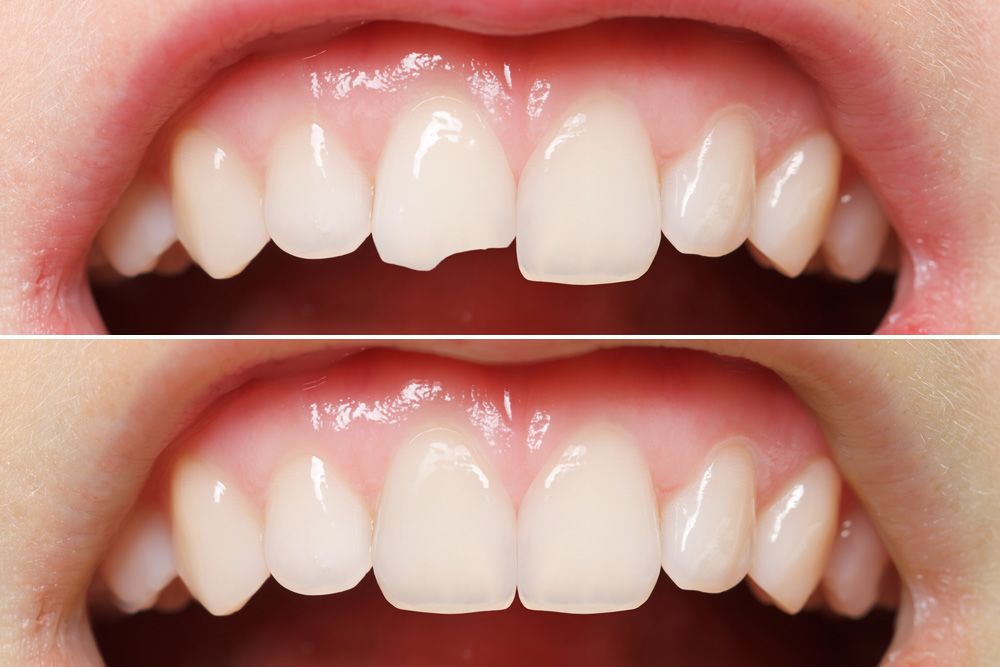The Effects of Bad Dental Habits
By John Rink DDS on August 11, 2015
 Many people engage in bad dental habits that can affect the health and appearance of your smile. At Charleston Center for Cosmetic and Restorative Dentistry, we offer general dentistry services to help you maintain good oral health. We also recognize when people have bad dental habits, and can advise patients on how to properly care for their teeth and gums.
Many people engage in bad dental habits that can affect the health and appearance of your smile. At Charleston Center for Cosmetic and Restorative Dentistry, we offer general dentistry services to help you maintain good oral health. We also recognize when people have bad dental habits, and can advise patients on how to properly care for their teeth and gums.
Biting Nails and Objects
The compulsive and potentially harmful habit of nail biting is known by scientists as onychophagia. If you bite your nails, you’re in good company; nearly a third of Americans have this habit. Worry, stress, boredom, emotional upheaval, and oral fixation can contribute to the habit, which usually begins between ages 4 and 10. In relation to dental health, biting your fingernails, pen caps, ice, or other hard objects can wear down tooth enamel or cause the teeth to crack or chip.
Neglecting Daily Brushing and Flossing
Like many patients, you may assume that the main purpose of flossing is to remove food particles stuck between the teeth. However, flossing also removes plaque before it calcifies into tartar, an insoluble bacterial substance that has to be removed professionally by scaling the teeth. We all produce plaque continually; there’s no escape from it. You might limit the amount of plaque produced in your mouth by cutting back on your intake of starches and sugars. But even with good dental care, plaque can form in hard to reach places. Within about 48 hours of forming, plaque hardens into tartar, also known as calculus. Flossing daily (every 24 hours) and brushing twice a day (every 12 hours) reduces the risk of tartar build up at the gum line and between teeth. If tartar is not removed, it can lead to gum disease, which comes with many systemic health risks and is the leading cause of tooth loss for American adults. If you aren’t sure how to floss properly, talk with Dr. Rink or a hygienist at your next visit.
Consuming Colas, Energy Drinks, and Citrusy Beverages
The sugars and acids in colas, energy drinks, and citrusy beverages can erode tooth enamel and cause cavities. Dental enamel is the single hardest substance your body creates - harder even than bone. However, it is still susceptible to wear, especially when exposed to an acidic environment. Citrusy beverages are acidic. When these acids contact tooth enamel, they extract calcium and phosphate, the minerals that strengthen enamel. With these essential minerals depleted, enamel softens, and acids wear it away over time. This cycle ultimately leads to permanent enamel erosion, and thinner enamel means less protection for your teeth. You may experience increased sensitivity or cavities. To avoid acid erosion and its negative effects, avoid acidic foods and drinks, or rinse your mouth with water after drinking or eating starchy, acidic foods and beverages.
Learn More Today
If your teeth feel more sensitive than they have in the past, you notice your gums receding or they feel sore, or you’re experiencing cavities and broken teeth, talk with us about your habits. We can advise you on ways to correct bad dental habits and improve your oral health. With proper care and modern dental medicine, more people than ever are keeping their natural teeth throughout life. Contact us today to schedule your checkup, consultation, or second-opinion.

